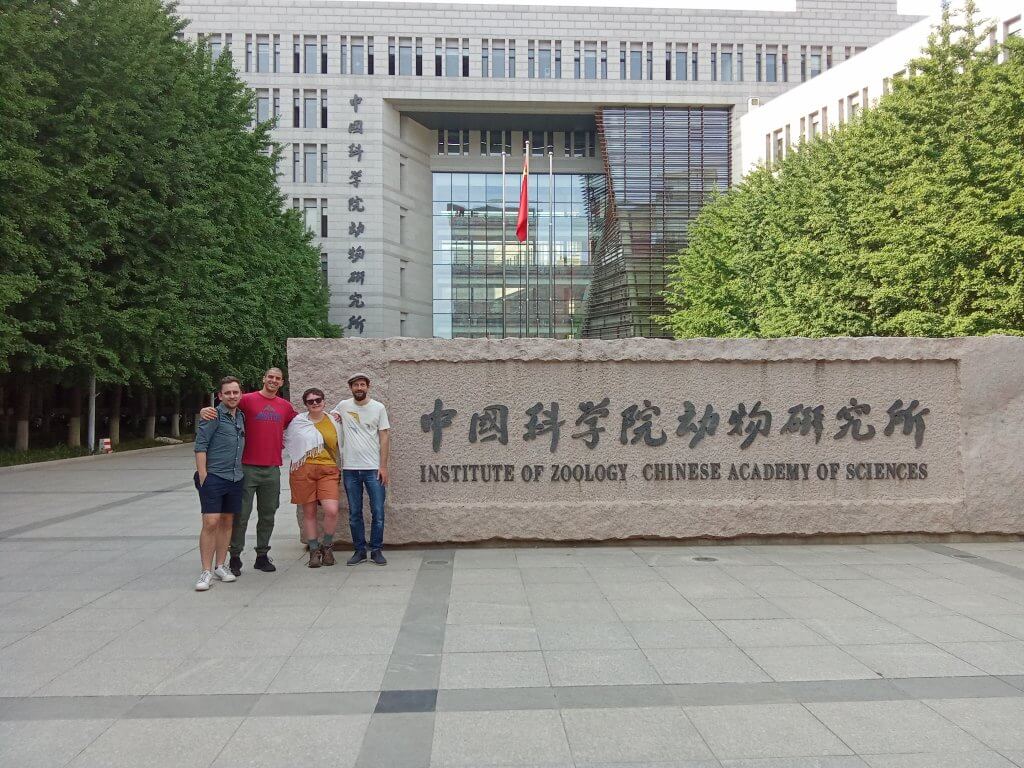The MultiTroph Symposium 2024 was held at the Institute of Zoology, Chinese Academy of Sciences (IOZCAS) in Beijing, led by Chao-Dong Zhu and Alexandra-M. Klein, and maintained by Finn Rehling and Qing-Song Zhou. This symposium aimed to foster collaboration and exchange views and ideas. All sub-projects (SP1-6, Z1 & Z2) presented their findings from the last field season and proposed their ideas for the upcoming season. In addition, our Chinese partners presented their research on multidiversity and multifunctionality (Yi Li), pollinator diversity in small-holder landscapes (Xiao-Yu Shi), herbivory community dynamics in BEF-China (Ming-Qiang Wang), seed dispersal by scatter-hoarders (Zhi-Shu Xiao), ecological modeling of species coexistence at the macro-scale (Huijie Qiao), and the evolution of wasp interactions (Arong Luo).



The symposium showcased the joint efforts and significant achievements of the collaborative research unit over the past year. A significant milestone was the signing of a contract about the maintenance of the field sites by Alexandra-M. Klein and Xiaojuan Liu. This contract now enables the support of partners not only conceptually and research-wise but also financially. Keynote speakers included Jörg Albrecht from Senckenberg Museum Frankfurt, who gave a talk on lessons learnt from ecological networks and trophic interactions based on natural history collections. In addition, Christina Grozinger from PennState University gave a keynote on the nutritional ecology of plant-insect interactions. Both talks were excellent and received with amazement, leading to many discussions afterward.
Interactive sessions, including panel discussions and workshops, allowed participants to engage in meaningful dialogue, explore new research avenues, and strengthen international networks. Among others, highlights were the practical sessions led by Douglas Chesters (DNA barcoding), Michael Staab (an introduction to linear mixed models), and Georg Albert (structural equation models). Up to 50 students and more participated in each of these sessions, making them highly successful. Furthermore, there was a session on conceptualizing a paper for MultiTroph, resulting in two ideas for concept papers. The outcome of these concepts will be eagerly anticipated in the future.
The event was rounded by a day-trip to a distant part of The Great Wall without many tourists, which made it a very enjoyable hike for all participants, and a day-trip to the art district 798 for those more interested in art than nature.
The German participants truly appreciated the hospitality of our Chinese partners. We felt that this symposium helped to not only build connections but also trust among partners. We are looking forward to the years to come.
The MultiTroph Symposium 2024 was a celebration of successful collaboration and a testament to the power of international cooperation in advancing knowledge and addressing global challenges. A big thank you to everyone participating and helping during the conference, especially the organizing committee and the Chinese students that helped in the background (especially Ting-Ting Xie)!
